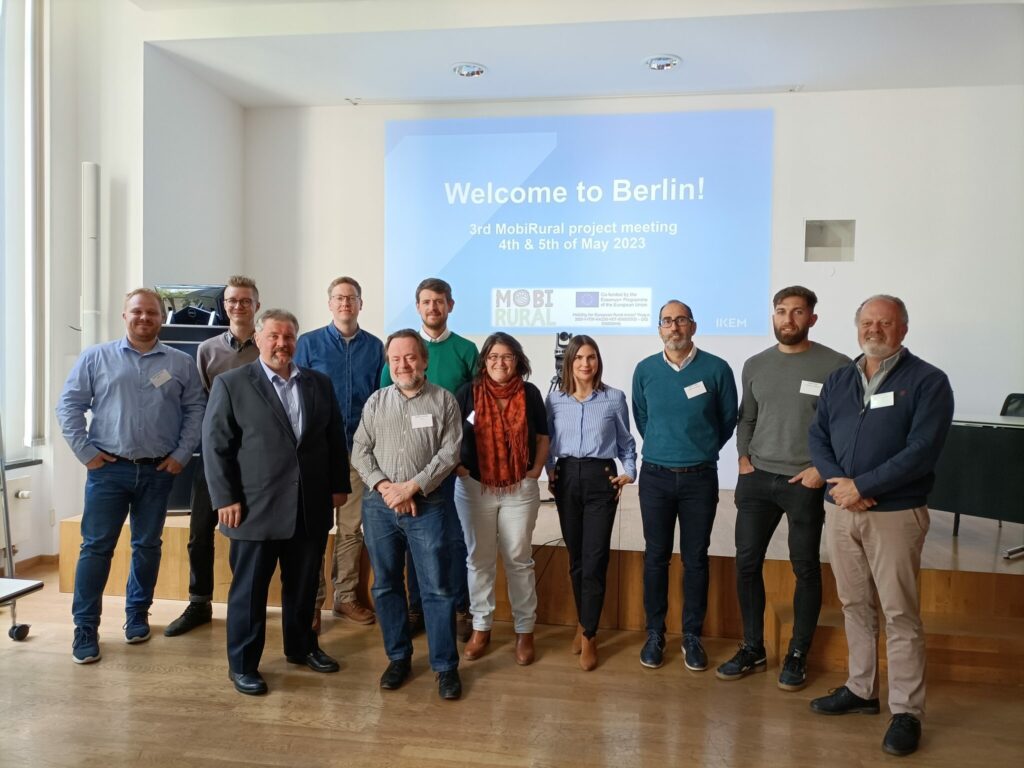The Mobility department is dedicated to the challenges associated with advancing digitalization and the development of autonomous vehicles. Other focal points include the transition to the use of alternative driving systems and fuels for transportation with as few greenhouse gas emissions as possible, innovative mobility concepts, the design of sustainable logistics, as well as the improvement of local public transportation. In this interview, Matthias Hartwig, Head of the Mobility department at IKEM, talks about the diverse approaches for more climate protection in the mobility sector.
For many years, the topic of mobility was dominated by motorized individual transport. What changes are you noticing at the moment?
In fact, the mobility discourse has expanded considerably to include more than just cars. Sustainability and environmental consciousness are gaining greater significance, with a particular focus on public transport, highlighted by the introduction of the Deutschlandticket. In addition, digital technologies are influencing the entire sector and efforts are increasingly being made to seamlessly connect different modes of transport. Another important aspect is the promotion of active mobility, especially cycling – here the presentation of the National Cycling Plan in 2021 has recently provided strong impetus. These developments show that we are in a transformation phase in which mobility is being designed to be more environmentally friendly and increasingly geared to the needs of users.
What does this change mean for the scientific work of the Mobility department?
While in the early days of IKEM we looked at mobility projects primarily from a jurisprudential perspective, in recent years we have established a holistic and interdisciplinary approach. By bringing together competencies from various disciplines such as law, urban planning, geography, transport, economics and social sciences as a team, we are able to examine the multi-layered issues surrounding the future of mobility and develop sound proposals for greater sustainability and climate protection.
Which topics are currently in the focus of the Mobility department?
Electromobility, including electric road systems, has been on our agenda since the early days of IKEM. Automated, autonomous, connected, teleoperated driving and innovative mobility concepts came into our focus in 2014 and have been a permanent topic ever since.
In the AHOI and NoWeL4 projects, for example, we are delving into a variety of research questions surrounding the approval of autonomous vehicles and related aspects of standardization and liability that we have already raised in predecessor projects such as HEAT and HubChain. Many of these questions must be answered anew at the new legal framework of the law on autonomous driving.
Improving the mobility offer – especially in rural areas – by linking different modes of transport or concepts such as citizen buses and fleet sharing is the focus of projects such as MobiRural and EUniS. Projects like Orchestra and EDDY, on the other hand, revolve around intelligent transportation systems and thus the data behind the traffic of the future.
What contribution does the Mobility department make to climate protection?
Our projects support climate protection in a variety of ways: In USER-CHI, we are working to make electromobility more accessible and user-friendly. AMELIE2 is creating the conditions for the introduction of overhead power lines to electrify and decarbonize freight transport. While greenhouse gases are saved directly here, the climate protection contribution in our autonomous driving projects is more indirect. Under the current legal approach, autonomous vehicles will initially only play a major role in public transport. If fleets of autonomous vehicles on the “last mile” succeed in making public transport more attractive, it will be a real success.







